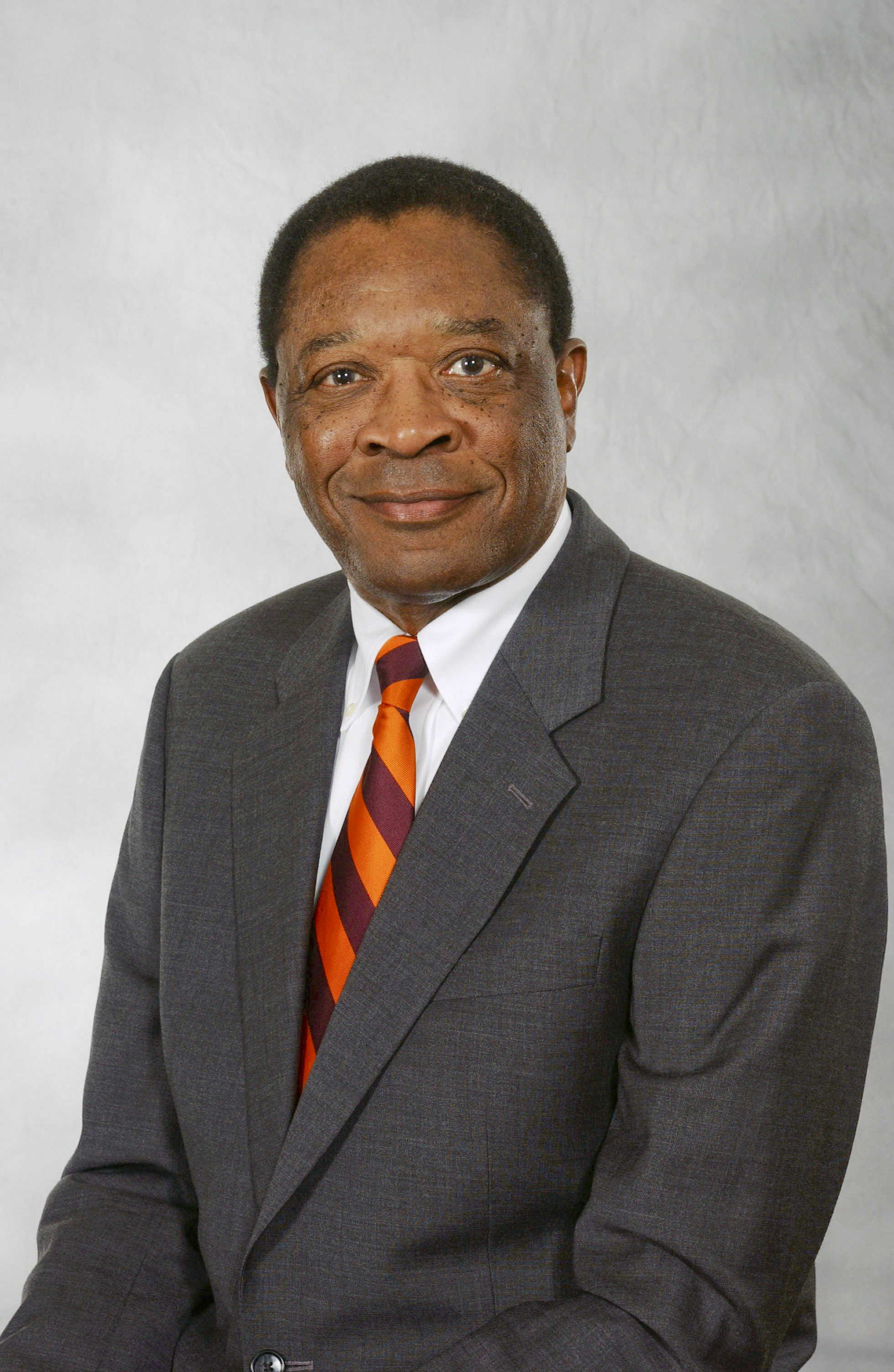In memoriam: Charlie L. Yates, Virginia Tech’s first African American graduate

Charlie L. Yates, the first African American graduate of Virginia Tech, a member of the university’s corps of cadets and later a member of the College of Engineering faculty, has died after a long battle with Leukemia. He was 74.
Yates made history in June 1958 as the first African American to graduate from Virginia Polytechnic Institute (VPI), still part of a South that largely practiced segregation in private and public – education, place of worship, neighborhoods, restaurants, and movie theaters. He graduated with a bachelor’s degree in mechanical engineering, with honors, and was hailed as the first African American “to be graduated from any major Southern engineering institute,” according to media reports at the time.
“Charlie was a pioneer among young black Virginians in the 1950s. He helped knocked down barriers at Virginia Tech that opened the doors for others to follow,” said Charles W. Steger, president of Virginia Tech. “It is noteworthy that he was one of six honors graduates in mechanical engineering in 1958. He will be long remembered throughout this academy for his many accomplishments. We were very proud to name one of our residence halls, Peddrew-Yates, in his honor.”
Yates was admitted to VPI in 1954, the second class to admit any African Americans. One earlier black student, Irving L. Peddrew III entered VPI the prior year, also joining the corps as required of all male underclassmen, to study electrical engineering. With Peddrew’s admission, VPI moved ahead of court orders and became the first historically white, four-year public institution among the 11 states in the former Confederacy to admit a black undergraduate. Two other African American students were in admitted in 1954 with Yates, but did not graduate.
All were enrolled in the College of Engineering, as were the handful of other black students admitted in the 1950s on the legal basis that no black college in Virginia offered an engineering program. None were allowed to sleep in dorms or eat in university cafeterias, instead taking nourishment and rest with African American families in town. Only once was Yates allowed to take a meal on campus, while pulling guard duty, according to a 1997 VT Magazine article: “There I was in the dining hall, off to myself, eating a meal,” the article quotes Yates as saying.
Yates recalled fond memories as well in various interviews. In a 1981 interview for a College of Engineering publication, Yates said he persevered because “I was determined to be successful and I spent a significant amount of time studying.” With a young Christiansburg woman who would later become his wife, Yates attended the university’s ring dance, with students voting positively on the matter over then-administration disapproval. “The fact that my classmates agreed to my attendance was indicative of the very good relationship I had with my fellow students … To the extent that was possible, I was made to feel like any other student as far as classroom activities were concerned.
After graduation, Yates obtained a master’s degree from Cal Tech in 1959. He briefly worked with Westinghouse, before moving to a job in research at the Applied Physics Lab at Johns Hopkins University. He also broke new ground there, becoming the first African American hired at the facility. He stayed for 19 years. In 1978, he earned a Ph.D. from Johns Hopkins.
Yates returned to Virginia Tech in 1979 as a faculty member in the mechanical engineering department, at the urging of Paul Torgersen, dean of the College of Engineering from 1970 to 1990 and subsequently president of Virginia Tech. In 1983, Yates left his position at Virginia Tech to head an engineering program at Hampton University, then served as a visiting associate professor at Old Dominion University. In 1987, he once again returned to Virginia Tech, as an associate professor in the aerospace and ocean engineering department. He remained at Virginia Tech until his retirement in 2000, when he was named professor emeritus.
Yates also served a term on the Virginia Tech Board of Visitors.
“Charlie was a gentle soul, a wonderful teacher and a role model when we desperately needed one. He leaves a significant legacy for the College of Engineering,” said Torgersen. Added Karen Eley Sanders, interim vice president for diversity and inclusion at Virginia Tech: “Dr. Yates was a pioneer who paved the way to and through college for thousands of young African American scholars around the nation. His impact on the Virginia Tech community will live on.”
Yates’ presence is felt on campus to this day. In 2003, the Peddrew-Yates Residence Hall was dedicated, and in 2005, the Yates Projects ambassador program was established. The program pays current students for recruitment visits to potential freshmen in their home areas during school breaks. It is coordinated through the Office of Admissions.
Services for Yates will be held at 10:30 a.m., Monday, August 16, at Rosewood Kellum Funeral Home in Virginia Beach, Va. Burial will follow at Rosewood Memorial Park. The family will receive friends from 6 – 8 pm on Sunday, August 15, at the funeral home. Memorial donations may be made to the Leukemia Society of America or Charlie Yates Scholarship Fund at Virginia Tech. More information on funeral services and the Yates family can be found at the Rosewood Kellum Funeral Home website.
Dedicated to its motto, Ut Prosim (That I May Serve), Virginia Tech takes a hands-on, engaging approach to education, preparing scholars to be leaders in their fields and communities. As the commonwealth’s most comprehensive university and its leading research institution, Virginia Tech offers 240 undergraduate and graduate degree programs to more than 31,000 students and manages a research portfolio of $513 million. The university fulfills its land-grant mission of transforming knowledge to practice through technological leadership and by fueling economic growth and job creation locally, regionally, and across Virginia.




